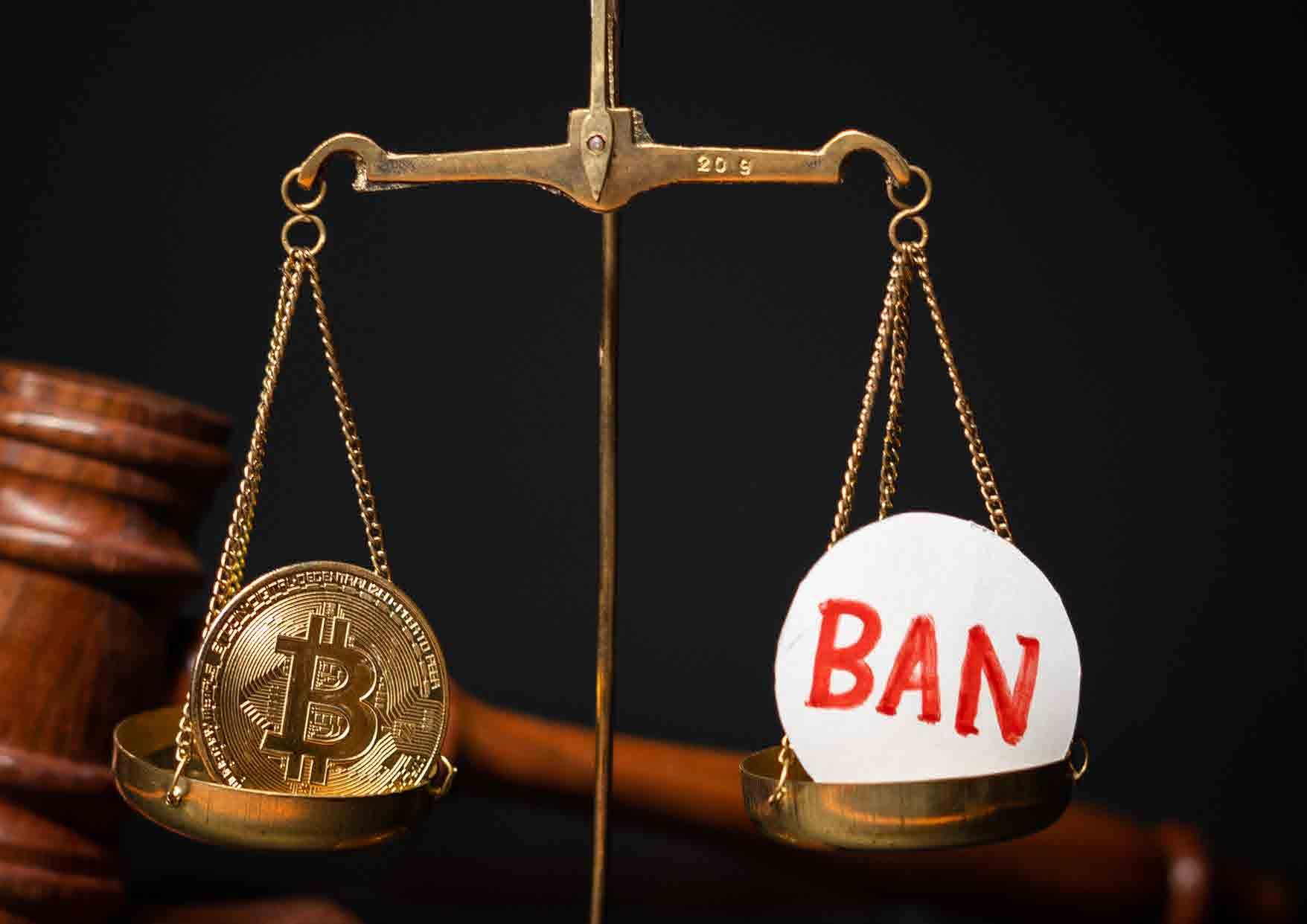
8 minute read
36Does Bitcoin Have an Energy ‘Problem’? Bitcoin: EU Votes Against Crypto Ban
Crypto Weekly
DOES BITCOIN HAVE AN ENERGY ‘PROBLEM’?
Advertisement
Ithink we should instead focus on Bitcoin's emissions instead of Bitcoin's energy use. Before we get into the details, let's clarify what Bitcoin (BTC) mining is, and why it needs so much energy. Mining is the mechanism that provides the Bitcoin network with its financial infrastructure, and it is energyintensive by design to ensure security.
The comparison game.
The best way to demonstrate that Bitcoin's energy use "doesn't matter" is to append Bitcoin's energy use to the United States' energy consumption and ask whether it looks like Bitcoin is using too much energy.
Since China consumes 79% more energy than the U.S., China has an even bigger energy problem than the U.S. Cryptocurrencies, like Bitcoin, consume less energy than China and the U.S. combined, just 1.9% and 3.5% respectively. The rest of the conversation follows a similar pattern. This graphic is intended to demonstrate that playing a comparison game is usually a waste of time. A lot of bitcoiners do this unproductively, comparing Bitcoin mining energy consumption to Christmas lights and the like, and just leaving it at that (Christmas lights do use quite a bit of energy, however). I compared it with video games in my report last April.
In that report, I probably made a cardinal sin by trying to justify Bitcoin's energy consumption because it is a "global, trusted, permissionless payment settlement network and a digital, aspirational store of value." Let's leave the morality lecture for another time and assume Bitcoin is worthwhile for argument's sake.
What is the purpose of Bitcoin mining?
There is no shorter answer than, Satoshi Nakamoto thought the best way to fairly distribute Bitcoins was to share them between miners who exchanged something valuable - energy - in exchange for the right to claim the Bitcoins. (The shortest short answer is "antispam.") To successfully decentralize trust in a network, you need to ward off attackers. The mining process is energy-intensive, making it prohibitively expensive to attack Bitcoin. Mines do not use energy to validate transactions; energy consumption is the price for securing the entire network.
Energy consumption of Bitcoin networks.
Bitcoin's energy density is interesting to compare with something like Visa, because that is how transactions are validated. There are only seven Bitcoin transactions per second compared to 24,000+ Visa transactions per second. However, Bitcoin doesn't use energy when it validates transactions. Miners add blocks of data to the chain, secure the network, and win Bitcoin in return. They do that to earn Bitcoin. The transactions are not their primary concern. Bitcoin full nodes, who do not mine Bitcoin, are primarily tasked with
Crypto Weekly

establishing consensus as to the network's true state. Furthermore, Bitcoin transactions differ from those conducted by Visa or other payment processors. (Probabilistic) finality is provided by Bitcoin transactions, but not by Visa transactions. The Visa system must be separated. Visa does not have its own "token."
Let’s talk about Bitcoin’s wemissions instead.
Organizations increasingly recognize the value of investing and implementing internal mandates in the areas of environmental, social, and governance (ESG). As an investor, I believe it is necessary to consider the environmental impact of Bitcoin's energy use, even when we ignore the "SG" (which are of great importance and relevance to Bitcoin).
Rather than the amount of energy it consumes, Bitcoin's environmental impact is largely determined by greenhouse gas emissions (mainly carbon dioxide) associated with the mining process. For now, renewable energy sources such as solar, hydro, and wind power will be considered "clean" (ignoring their negative externalities). A cleaner energy mix has a lower impact on the environment.
Mining Bitcoins received the most environmental criticism due to the fact that the majority of miners were in China (over 80% in February 2020), a country heavily dependent on coal-fired energy (although Chinese miners used a surprising amount of clean energy). In May 2021, China banned crypto mining, which resulted in miners moving to the United States, Kazakhstan, and Russia. It will take some time for those miners to decide to use clean energy sources, but at least in the U.S., they seem largely determined to do so.
Bitcoin mining uses a respectable percentage of renewable energy. As predicted by a 2020 study, in 2019, 39% of Bitcoin mining energy will come from renewable sources (up from 28% in 2018), with 76% of miners using renewable sources. The Bitcoin Mining Council (BMC), an organization of Bitcoin miners dedicated to promoting energy transparency, sharing best practices and educating the public about the benefits of Bitcoin and Bitcoin mining, reports that 58.5% of global Bitcoin mining is powered by renewable energy (66.1% among BMC members). This is a relatively clean image. There is a possibility that the survey results have a social-desirability bias since inclusion in the BMC is entirely optional.
Where do we go from here?
I could have covered plenty of other ESG related topics in this article, like how Bitcoin mining could stimulate renewable energy production, improve electrical grid stability, revitalize local economies, empower poor communities, or act as a "load-balancing economic battery." Bitcoin mining and its energy use are complicated, multidisciplinary subjects. As an example, I believe that investing in Bitcoin could be considered ESG, since it may have an impact on energy generation. This column on its own doesn’t represent a full defense of that thesis because there are so many angles that weren’t considered. This should, at the very least, inspire more discussion of Bitcoin's true energy purity and wider impact.
Crypto Weekly

BITCOIN:
EU VOTES AGAINST CRYPTO BAN
The European Union voted against a ban on crypto after a plan to regulate the crypto industry failed to receive enough votes. The European Parliament voted against a new provision in a crypto regulatory framework that could have banned Bitcoin and Ethereum in Europe. The parliament's economic and monetary affairs committee amended the markets in Crypto Assets (MiCA) draft legislation introduced in 2020.
Recently, a text was added banning the offering of services relating to cryptos that rely on the proof-of-work (PoW) mining mechanism. This increased the pressure on the crypto industry as nations tightened regulations. As part of last week's amendments, a licensing regime on the continent and uniform rules for members was established to strengthen the regulation of digital assets. A cryptocurrency that relies on an energy-intensive process like PoW, where computers solve complex mathematical puzzles to generate new digital asset units, would be banned.
In the end, 32 MEPs voted against and 24 in favor of the proposal, which would have forced
Crypto Weekly

PoW cryptocurrencies to switch to more ecofriendly mining. If the new rules are adopted, Bitcoin and other cryptocurrencies will have to phase out proof-of-work and switch to proof-of-stake. Using proof-of-stake, you can stake coins and create your validator nodes.
Cryptocurrencies such as Bitcoin use proofof-work, although Ethereum plans on using a proof-of-stake system that requires far less power. A vital component of the Bitcoin blockchain is the proof-of-work (PoW) system, under which miners contribute their computing power to the network. Miners need to solve a numeric problem in order to earn new Bitcoins, and the first step to mining is to start participating in this PoW activity. Miners are rewarded with Bitcoin for securing and processing the blockchain.
According to the draft, crypto-assets "shall be subject to minimum environmental sustainability standards for their consensus mechanisms for validating transactions," which refers to cryptos that use PoW. Also, cryptos that are energy intensive must undertake a "phased rollout plan" to ensure compliance.
However, there are "dominant risks" in the short term, since Ethereum plans to move from PoW to PoS, but Bitcoin cannot transition to PoS. That said, Marcus Sotiriou with GlobalBlock, a London-based broker of digital assets, said, “Bullish and bearish catalysts are on the horizon.” The German CDU's Stefan Berger tweeted last week that, “An earlier outline didn't mention a PoW concept.” “Members of MICA have paved the way for future-oriented crypto regulation by voting for my proposal,” Berger tweeted on Monday. Berger has been tasked with overseeing the bill and submitted it last week. It is now up to the final vote to approve the whole report & send a strong signal for innovation.
Previously, the cryptocurrency community and industry have opposed the controversial proposal. The CEO of Ledger, one of the world's largest crypto wallet providers, said, “Ledger always defends freedom and selfcontrol. Let your Member of the European Parliament know that you oppose a ban on Bitcoin in Europe by contacting the Bitcoin Association."
Environmental activists and lawmakers have called for regulations in light of crypto mining's environmental impact. They claimed that proof-of-work cryptocurrency activity was energy-intensive. A cryptographic algorithm is solved simultaneously by everyone in a PoW blockchain network. A blockchain's design makes solving it harder as more computers attempt to solve it. So much computational power, and therefore energy, is expended verifying each block.
The Bitcoin mining process is how new Bitcoins enter circulation and how the network confirms transactions. Miners are crucial to the development of the blockchain ledger. A change to the PoW method will adversely affect Bitcoin as it is considered an outstanding network feature. Since Bitcoin is highly decentralized and governed by the social consensus of 150,00 full-node operators and miners. In a long-awaited executive order last week, Biden's administration instructed federal agencies to recognize and regulate digital assets.The bill also requires the government to review the technology necessary to create a digital currency backed by the central bank, which could ultimately reduce Bitcoin's dominance.





